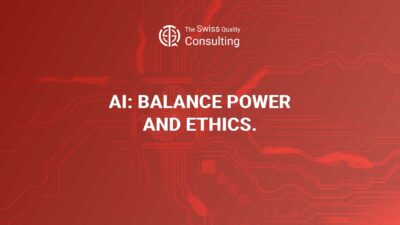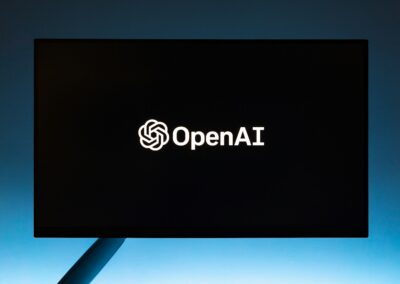Promoting Ethical AI Development in Saudi Arabia and the UAE
The Importance of Ethics in AI Development
The role of ethics in AI development is crucial to ensuring these technologies are used responsibly and for the benefit of society. In regions like Saudi Arabia and the UAE, where AI is a key component of national development strategies, embedding ethical principles in AI development is essential.
Ethical AI development involves creating technologies that prioritize the well-being of individuals and communities. This includes ensuring transparency in AI algorithms, protecting user privacy, and preventing biases that could lead to discrimination. In Saudi Arabia, initiatives like Vision 2030 emphasize the importance of ethical considerations in technological innovation. The Saudi Data and Artificial Intelligence Authority (SDAIA) plays a pivotal role in establishing guidelines that promote responsible AI use.
Similarly, the UAE has been proactive in developing a regulatory framework that addresses the ethical implications of AI. The UAE’s National Program for Artificial Intelligence focuses on creating a robust infrastructure for AI development while ensuring that ethical standards are upheld. By prioritizing ethics in AI development, Saudi Arabia and the UAE are setting a global example for responsible technology use.
Executive Coaching: Guiding Ethical AI Practices
Executive coaching services are vital in helping business leaders navigate the complexities of ethical AI development. In Riyadh and Dubai, where AI technologies are rapidly advancing, leaders must be equipped with the knowledge and skills to implement ethical AI practices within their organizations. Executive coaching can provide this essential guidance, ensuring that leaders make informed decisions that align with ethical standards.
Coaching programs can help executives understand the importance of transparency in AI algorithms and the need to protect user privacy. This includes implementing robust data protection measures and ensuring that AI systems are free from biases. By fostering a culture of ethical awareness, executive coaching ensures that organizations in Saudi Arabia and the UAE can harness the power of AI responsibly.
Moreover, executive coaching can assist leaders in advocating for policies that promote ethical AI development on a broader scale. By engaging with policymakers and stakeholders, leaders can contribute to the creation of a regulatory framework that supports responsible AI use. This proactive approach not only enhances the organization’s reputation but also contributes to the overall development of an ethical AI ecosystem in the region.
AI for Beneficial Purposes: Case Studies from Saudi Arabia and the UAE
The responsible use of AI technologies for beneficial purposes is a key aspect of ethical AI development. In Saudi Arabia and the UAE, numerous initiatives demonstrate how AI can be harnessed to improve societal outcomes. For instance, AI-driven healthcare solutions are being developed to enhance patient care and streamline medical processes.
In Riyadh, AI is being used to develop predictive models that can identify potential health risks and enable early intervention. These models analyze vast amounts of data to provide personalized healthcare recommendations, improving patient outcomes and reducing healthcare costs. By focusing on the ethical use of AI in healthcare, Saudi Arabia is ensuring that technological advancements translate into tangible benefits for its citizens.
In Dubai, AI is being integrated into smart city initiatives to enhance urban living. AI technologies are used to optimize traffic flow, reduce energy consumption, and improve public safety. By leveraging AI for these purposes, Dubai is creating a sustainable and efficient urban environment. These examples highlight the potential of AI to drive positive change when developed and implemented ethically.
The Future of Ethical AI Development
Addressing Ethical Challenges in AI Development
As AI technologies continue to evolve, the ethical challenges associated with their development and use will become increasingly complex. In regions like Saudi Arabia and the UAE, it is essential to anticipate and address these challenges proactively. This involves continuous monitoring of technological advancements, engaging with stakeholders to understand their concerns, and developing flexible ethical frameworks that can adapt to new developments.
One of the primary ethical challenges in AI development is ensuring that AI systems do not perpetuate biases or discrimination. This requires a concerted effort to create diverse and inclusive datasets and to implement algorithms that are transparent and accountable. By addressing these challenges, organizations can develop AI technologies that are fair and equitable.
Another challenge is protecting user privacy in an era of big data. AI systems rely on vast amounts of data to function effectively, but this data must be handled responsibly to protect individuals’ privacy. Implementing robust data protection measures and ensuring that users have control over their data are essential components of ethical AI development.
Leveraging Blockchain for Ethical AI Development
Blockchain technology offers a promising solution for addressing some of the ethical challenges in AI development. Its decentralized and immutable nature ensures that data is securely stored and protected from unauthorized access. In the context of digital ethics and AI, blockchain can provide a transparent and secure framework for managing personal information.
In Saudi Arabia and the UAE, blockchain is being explored as a tool to enhance the ethical development of AI. For instance, blockchain can be used to create an immutable record of data transactions, ensuring transparency and accountability in AI systems. This transparency is crucial for maintaining public trust and ensuring that AI technologies are used responsibly.
Furthermore, blockchain can facilitate secure data sharing across different entities, enabling collaboration while maintaining data privacy. This is particularly relevant in sectors like healthcare and finance, where sensitive data must be protected. By integrating blockchain with AI, organizations can create a more secure and ethical digital environment.
The Role of Generative AI in Ethical AI Development
Generative AI, which involves the creation of new data based on existing data, offers significant potential for ethical AI development. In regions like Riyadh and Dubai, generative AI can be used to create synthetic datasets that protect user privacy while still allowing for effective AI training. This approach ensures that AI systems can be developed without compromising individuals’ personal information.
Generative AI can also help in creating more transparent and explainable AI systems. By providing insights into how AI algorithms make decisions, generative AI can enhance the accountability of AI systems. This transparency is crucial for addressing ethical concerns and ensuring that AI technologies are used responsibly.
Moreover, generative AI can contribute to the development of AI systems that are free from biases. By creating diverse and representative datasets, generative AI can help in developing algorithms that are fair and equitable. This is particularly important in multicultural regions like Saudi Arabia and the UAE, where the impact of biased AI systems could have far-reaching consequences.
Conclusion: Embracing Ethical AI Development for a Responsible Future
The integration of AI technologies holds tremendous potential for driving innovation and growth, particularly in regions like Saudi Arabia and the UAE. However, the ethical development and use of these technologies are paramount to ensuring their responsible and beneficial impact. By adhering to the principles of digital ethics and prioritizing data privacy, organizations can address concerns related to cybersecurity and the ethical use of AI.
Executive coaching, leadership development, and the use of blockchain technology are critical components in promoting ethical AI development. These elements provide the necessary framework for organizations to navigate the complexities of AI responsibly. As these technologies continue to evolve, maintaining a strong focus on digital ethics will be essential for achieving sustainable growth and fostering a secure digital future.
—
#EthicsInAIDevelopment, #EthicalAI, #ResponsibleAIUse, #AIEthics, #PrivacyInAI, #SaudiArabiaAI, #UAETechnology, #RiyadhInnovation, #DubaiAI, #ExecutiveCoachingInAI























